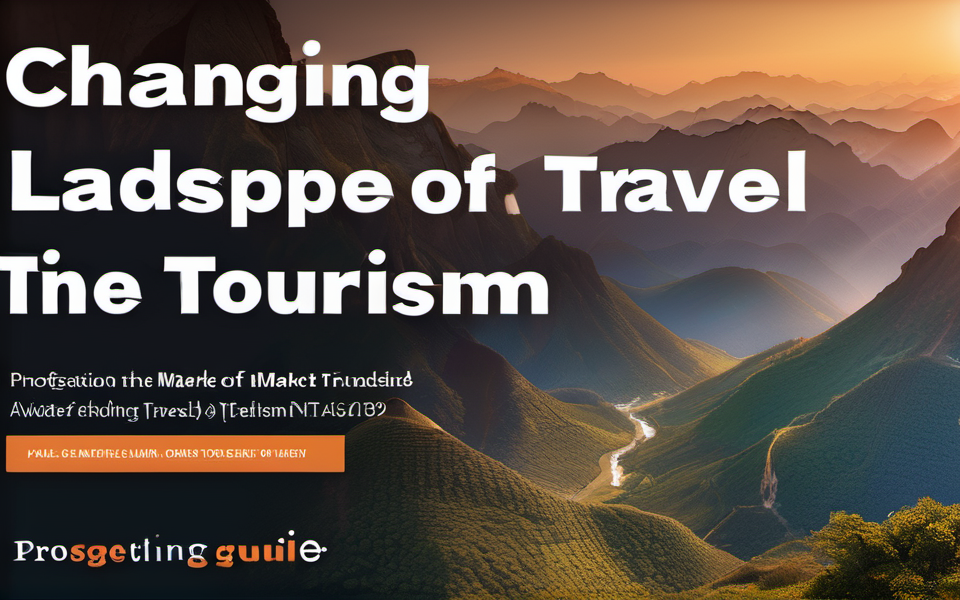Want to know the secret to future travel? Forget about your old ideas – things are changing, and fast. The travel industry is on the move, evolving in ways we couldn’t imagine just a few years ago. This shift isn’t just about new destinations, it’s about a whole new set of travel regulations, market trends, and tourism industry changes that are reshaping the way we experience the world. Get ready for a ride – it’s time to dive into the exciting and dynamic landscape of the modern travel industry.
New Regulations: Shaping the Travel Experience
Think of it this way: Travel isn’t just about getting from point A to point B anymore. Global travel regulations are evolving rapidly, influencing how and where we travel. From air travel restrictions to stricter visa policies and entry requirements, governments around the world are tightening the screws on tourism to protect their populations and resources. This new focus on safety and sustainability is changing the game for travelers.
The Rise of Biometric Security
Forget about your passport – in the near future, facial recognition technology will be the key to unlocking your next travel experience. Many airports and border crossings are already using biometric data to verify travelers’ identities, providing faster, more secure procedures. This shift isn’t just about speeding up check-in; it’s about enhancing security by combating identity theft and tracking travelers in real-time.
- Example: Airports like Singapore Changi and Abu Dhabi International have implemented biometric boarding gates, using facial recognition technology to identify passengers and eliminate the need for physical boarding passes.
- Impact: This technology has implications for how we travel, potentially leading to seamless and personalized experiences.
Environmental Sustainability: A Priority for the Future
Sustainable tourism is no longer just a buzzword; it’s a necessity. Travel industry regulations are increasingly emphasizing environmental sustainability, pushing travelers to make more eco-friendly choices.
- Examples:
- Carbon offsets: Increasingly required or encouraged for air travel, helping to neutralize carbon emissions from flights.
- Single-use plastic restrictions: Many destinations are implementing bans or restrictions on single-use plastics, encouraging the use of reusable water bottles and bags.
- Impact: This change means more responsible travel, protecting delicate ecosystems and encouraging eco-tourism.
Market Trends: The Shape of Travel to Come
Travel isn’t just about hopping on a plane anymore. The travel industry is facing a dynamic shift, fueled by emerging trends, changing demographics, and new technologies. These trends are transforming the very fabric of the travel landscape, reshaping travel preferences and offering exciting opportunities for exploration.
The Rise of Experiential Travel
We’re moving away from simply checking off destinations from a bucket list. Experiential travel is gaining momentum, emphasizing authentic, immersive experiences over just sightseeing.
- Example: Travelers are choosing activities like cultural immersion workshops, adventure tours , or culinary vacations over traditional tours and sightseeing.
- Impact: Experiential tourism brings people closer to local communities and provides meaningful interactions with different cultures, offering a richer and more fulfilling travel experience.
The Power of Technology: Reshaping the Travel Industry
Technology is the engine driving many market trends in the tourism industry. Online booking platforms have transformed travel planning, allowing travelers to customize itineraries and find hidden gems, and mobile apps are streamlining everything from booking to navigating.
- Examples:
- Travel apps: Apps like Google Maps and TripAdvisor offer real-time information on destinations, recommendations for local attractions, and even navigation assistance.
- Virtual Reality Experiences: These provide immersive experiences of potential travel destinations before committing to booking, making it possible to virtually “visit” before making a real trip.
- Impact: Technology is democratizing travel, empowering individuals to plan and manage their travel experiences, leading to a greater sense of freedom and personalized itineraries.
The Future of Tourism: A Vision for Sustainable Growth
Looking ahead, the travel industry must prioritize responsible tourism practices while embracing market trends to achieve sustainable growth. This means fostering a symbiotic relationship between travelers and host communities.
- Key Priorities:
- Promoting sustainable travel practices: Emphasizing environmentally friendly activities and minimizing the carbon footprint of tourism.
- Enhancing cultural exchange: Providing opportunities for travelers to connect with local communities, sharing knowledge and understanding across cultures.
- Supporting local economies: Ensuring tourism dollars benefit local communities and help preserve traditional ways of life.
Conclusion: Embracing the Future of Travel
The future of travel is bright, but it comes with challenges. Travel regulations are changing the rules, market trends are influencing choices, and the tourism industry must adapt to create a more responsible and sustainable future. By understanding these dynamics and embracing innovation, we can navigate the evolving travel landscape and shape the experiences of future generations of travelers.
Key Takeaways:
- Travel regulations are becoming increasingly stricter, prioritizing safety and environmental sustainability.
- Biometric security and environmental regulations are shaping future travel experiences.
- Market trends like experiential travel and the use of technology are transforming the travel industry.
- The future of tourism must prioritize sustainable growth and a symbiotic relationship between travelers and local communities.
- Travelers should be aware of and embrace new travel regulations, adapt to evolving market trends, and choose responsible travel practices.




